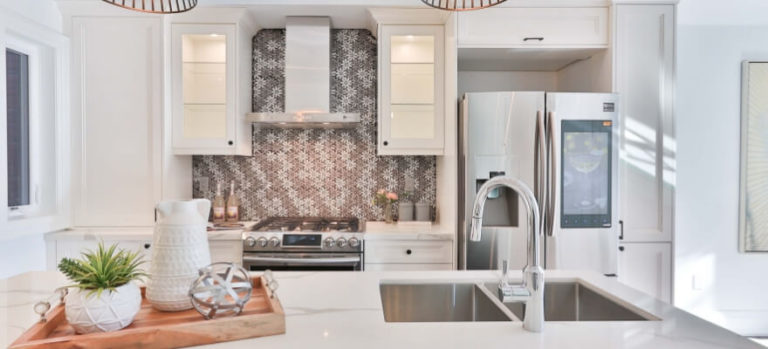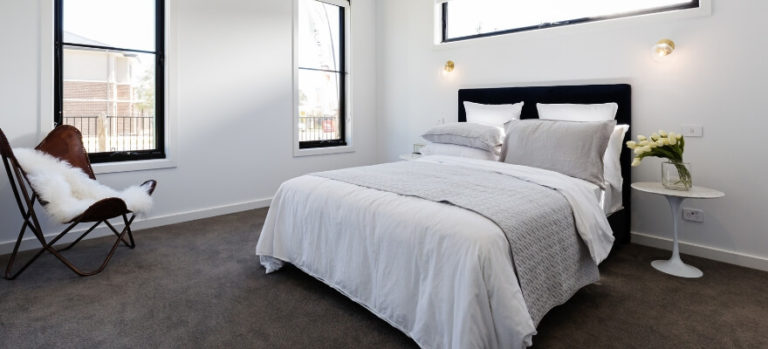James sits down with Todd Matheson from KM Sales & Marketing to talk about buying property off the plan.
In this interview James and Todd chat about:
- The difference between off the plan and general real estate
- The process when it comes to off the plan
- The benefits of buying off the plan
- What the body corporate covers
- Plus so much more!
Read on below for the full transcription of our interview:
– Good day everybody, James from mrkts.com.au here and today we’re very lucky to be joined by mister Todd Matheson of KM Sales & Marketing. He is a senior sales associate with over 15 years of experience in the real estate and off the plan selling. Toddy, thank you for coming in.
– James, thanks for having me.
– So good to see you in a corporate setting. So Todd, a little bit about yourself we always like to start it off for people at home who aren’t familiar with what it is that we do with a little bit of a background. So, your CV in under one minute, if we can do it.
– Yeah, no problems, mate. Well, as I said, thank you for having me, it’s a pleasure to be here. Myself, straight out of school and pretty much into real estate. So I got into it from a pretty young age. I was fortunate enough to become a bit of a sales associate with a leading performing, leading agent of the Gold Coast back in the time. Started with them, was a bit of an everything-role. You know, I did sales, did problem management, did administrative contracts. So I was fortunate to get a broad spectrum of the industry on the residential side of things. After a little while there, I got a bit of inspiration and I guess realized that rent rolls can be an extremely valuable asset and business in life. And I ventured out on my own and started my own rent roll. Ran that for about two years, then also realized that running a business can be very challenging. A lot of obstacles. It was a great learning experience, and did very well out of that, but I then sold it. And realized that I really wanted to get back more into the sales side of things. Back into residential. And then sort of in the last five years, I was fortunate enough to, I guess, again, sort of see some opportunity in a project space. And I saw it was where a lot of my passion is as I went. So I went down that path. Again, fortunate to meet a couple of developers who gave me some opportunities. And yeah, been in that five odd years now and starting to get to some bigger projects and hopefully just keep going from that.
– Beautiful. So we’ll run through some of those now, today with our specialist topic, is talking about off the plan. So it’s a very hot topic at the moment. There’s some things that are happening down in New South Wales that are interesting, and we may touch on them a little bit later. But I think it’s always good to know if the people who aren’t used to the business, the important questions that they have to answer. We’ll hopefully touch on all of that today. I thought we’d start then, Toddy, with explaining the difference between off the plan and general real estate. So when people are trying to discover what is off the plan, and what is normal house, what are those differences? If you can break it down for us.
– Yeah, look, I guess the end result, there’s no real differences in the end in terms of, at the end of it, you can have a two bedroom unit, or a three bedroom unit, or a house that you can have. But I guess it’s the process in terms of an established residential sale is something where it’s an existing property that’s been there for one year, 10 years, 30 years, whatever it might be. You can physically walk through it, see what you’re about to buy, make an offer, and away you go. Off the plan, there’s a few variances there as well, which I guess we’ll delve into a little bit more today. But the main things is, there’s either apartments off the plan, or there’s also house and land. I specialize more in off the plan apartments and townhouses, I guess. So that’s where, I guess, I can sort of shed some light on what that will be.
– Yeah, excellent. So one is tangible, and in existence. And then off the plan purchasing is more you’re buying something that will exist.
– Correct.
– Okay, excellent. Todd, how does it all work? What is the process for the purchaser? They’re looking to buy a new property, they like the position of something that you’re offering. What is the process that they need to go through?
– Yeah, well, again, I think what it is, is some similar processes in a way. But the major difference there’s been around it, is, I guess, a time factor to it. And then also being open to the fact that you may not actually physically get to see what you’re gonna be purchasing. It’s gonna be off a plan, as some finished boards, and sort of going from that. So I guess the starting process for purchasing off the plan, is, I guess, narrowing down to an area that you might be wanting. They just got to go down to some basics. If you’re looking across multiple suburbs, hone into what you’re wanting in a suburb, and then knowing now there might be three projects in that suburb, and starting that process. So from that, you might be looking at a two bedroom apartment, they need to look down to pricing, so and so forth. Argument’s sake, you get all through that process of what you’re wanting, there’s then some differences where it comes down to contracts. Settlement processes, deposits, and things like that. So, stereotypically, if we again start from the bare bones, is what we start with on our side of things being a sales agent, is an expression of interest.
– Okay.
– That is basically the scenario where if you’ve got a particular unit in a particular project that you’re liking, and you’re still not 100% on it, you can put down what we call an expression of interest. Which secures that property on a small $1000, $2000 holding deposit, which is refundable should you decide not to proceed. That allows you to sort of, I guess, as I say secure that particular apartment, while you do some more due diligence, while you’re checking over who the developer is, who the builder is, what finisher you’re gonna get, am I allowed to change anything? Negotiating the price or terms of the contract. If after that wait process, every developer or every group will be different about what amount you have to put down and the timeframe around it. But similar sort of scenarios. What it’ll be then is, at the end of that week, two week period, you say, “I’m sorry, I don’t want to proceed.” The deposit is refunded and we start from a new buyer.
– Let’s hope we don’t hear that.
– Let’s hope we don’t hear that, that’s always the ideal.
– Yep.
– Ready to go ahead, and then that starts a bit of another process then. So once you decide, yes, I am committed in wanting to go to that, we then go to an actual contract.
– To a contract of sale.
– Contract of sale.
– And then the contract of sale lasts for how long?
– So this is again where, I guess, some of the differences come into play. So the residential sale contract is quite straightforward. It’s a pretty standard scenario nowadays in terms of conditions and terms that you might want in a residential sale. Because you’ve seen what you’re buying. You’ve seen that it’s double brick construction, you’ve seen the rooms, you’ve seen the condition of the property. When it comes to an off the plan contract, it’s a lot more substantial. There’s a lot of vairables that can take place in terms of timeframes, according your finish, builder, products that might be needed. Which again, we can delve into, I guess–
– Layouts and designs can sometimes be a little bit different.
– Correct, yeah. So the process is, again, the same as we did. And it’s that, you commit to a contract, you sign the contract. It’s a 10% deposit, stereotypically. And then basically that deposit goes in. If it’s a one year, two year build, whatever the timeframe is, there’s no further payments. This is off the plan apartments, it could be different to house and land. But apartments, it’s a 10% deposit down, and then nothing further until settlement.
– Until settlement. So it can be, in Queensland, it’s up to 20% for a deposit.
– Correct.
– But it’s generally, Todd, in his experience has dealt with the 10%. So you put that money down, no more to pay until completion and settlement. So settlement is a very important term for people in our business. So, when do people know that it’s settlement time?
– Again, this is a very moving target in off the plan. And this is where, being very forward and frank, some frustrations can come from buyers. And I guess it comes down to communication of ourselves as a sales agent, the developer, and the builder. So there’s a few things when it comes to construction, mother nature, councils, that were out of our control. So we can’t pinpoint and say, this specific day, two years out, is the day that you’re gonna be able to settle this project. So that comes down to communication. But in terms of that similar process, to give an idea for buyers, the way that that works, is obviously, there’s a what they call PC, which is practical completion. That’s from the builder’s side of things. From that process is when, theoretically, the building is finished. They’ve got it all signed off by certifiers, plumbers, electricians. Again, you may know more about this side of things than what I do.
– I wish I knew more.
– But that’s, I guess, the sides that you’ve got to get ticked off. From that process, then you go to council approvals. That can be a timeframe there. And then titles office with the state, which then takes another timeframe. And then once we have titles on the actual, physical individual units, we then go to call for settlement, which is stereotypically 14 days in a contract process.
– So, you won’t be asked to pay your money until they’ve called for settlement, and that’s giving you a 14 day window in which to do sell and pay the money. It could be three weeks, could be four weeks. It’s highly unlikely. It’s most likely to be a minimum of 14 days, and a maximum of 40 .
– Yes.
– Yeah, but communication is a very, very important point that you touched on. So expect more of your sales person, and when they’re not communicating with you, pick up the phone and give them a call.
– That’s exactly right. Don’t be afraid to call us. There’s no denying that our industry can be slapped with some, you know.
– A bit of laziness.
– Yeah, a bit of laziness, there’s no denying that. But in saying that, sometimes it might be the laziness, it might just be that we are under the pump with other sort of things. So don’t be afraid to pick up that phone and give us a call. Ask for an update on a project, and sort of see where the process is.
– And if you’re not getting the updates, then that is something that you should probably bring up with the sales person, then request updates to come in. Because, and there’s an element of risk as there is with any property, regardless if it’s off the plan or not. So you factor that in as you move forward, but you’ve got to be in communication at all times, so you know how to measure your risk, I suppose.
– So in summation, we’ve summed up the process now. Essentially you go in, you put down your deposit, it’s then taken off the market and held as your property. And you’ve got a contract of sale, unconditional. Or conditional, defies, depending. And then you go to settlement, and then it’s your property, and you’ve moved in. There are defect periods and things like that we can consider as well. Which is something that I assume you then take the buyer through. And you show them, I think they have a right to a, what is an inspection before completion.
– pre-settlement inspection.
– pre-settlement inspection.
– Yeah. Okay, so what does that entail? Again, I guess this goes back to what we were talking about, the in-depths of contracts. So off the plan contracts have a lot more detail around these sorts of things. Because again, you don’t know what the finished product is ultimately gonna be. So one of the conditions in an off the plan contract, which is there to protect purchases, is they’re allowed what they call a presettmenet inspection and a defect period. Again, these can be a sliding scale, and these are the questions that you should be asking, I guess, of your sales agent and your solicitor, of what are my defect periods? What are my warranty periods? And things like that. Stereotypically they are around about a 90 days after settlement, the defect period. So is where you’ve got a time to report defects up to. Most of the time, for everyone involved, it’s better to do defects before settlement, though. So we always try and do what we call a pre-settlement inspection, where we get buyers through, we allow them to inspect the apartment, see what they’ve purchased, and walk through the apartment in fine detail to check the things over. Tiling, painting, cabinetry work, any sort of facets to the construction of it. They’re allowed to go through and put forward what they believe should have been better quality, or scratches on walls, or uneven carpet.
– So that’s your time to identify the things that you may not be happy with. Of course, the defect periods in Queensland work sort of in tandem. There are category 2 and category 1. Category 2 being those minor defects that we’re talking about now, so those things. You have to report them within 12 months. With the category 1, you hope to not experience that. Which is what’s being experienced in New South Wales at the moment. Which are major structural defects, which the builder is then liable for seven years. Six years and nine months, seven years is sort of just an easier way to put it. That pre-settlement inspection time for you is very important to communicate, I take it.
– Correct, yeah. For us, we communicate that to make sure every buyer is happy and moving forward. Another thing that, just again, full disclosure, is pre-settlement or defects, you can’t stop settlement on a category 2 defect. So, a small thing where it might be a scratch on a wall, it’s not gonna stop you, or you’re not gonna be able to pull out on settlement for that. It’s just a matter that they have to amend those or fix those up beforeghand.
– That’s a very good point.
– It’s one of the questions that constantly comes up.
– So it’s something to be aware of. Can you sell the property prior to the project being completed? So you’ve done your deposit, you’ve paid your 10%.
– Yes. You got a contract, can you sell it before settlement?
– Again, this is, they’re all moving targets. So many of these things, I guess, it all comes down to negotiation. And this is where, I guess, where again, we talk about what some of the commonly asked questions. It’s one that is commonly asked, and again it’s a sliding scale, and again it’s a negotiating power. It depends, most of your contracts, standard contracts, will state that you have to seek approval from the developer to sell prior to. The reason, there’s a few reasons around this. One, they want to be able to, obviously, they have a liability of selling their product first. And they want to be able to sell their project before you try and resell. The main reason why they want to seek approval before allowing you to onsell is so that there aren’t any fire sales in a building that will affect evaluations at settlement.
– Correct, which will impact on every purchase, not just one.
– Yeah, and I think again, that’s something that sometimes purchasers may underestimate around the severity of evaluations in a project of this scale. You know, 50 units, 100 units, 500 units. Everyone’s gotta band together and get the best evaluations possible. Because if one comes in at under, that can affect future ones moving forward.
– Evaluations are a very important part of the puzzle.
– Very important part of the puzzle, which again, we can touch on. But in terms of that, yeah, sorry. Getting back to the actual question of can we sell prior, you can by all means. It’s just, And this again comes back to some negotiation powers. You can request to have that clause removed when you’re negotiating at the start of your contract. Or if you leave it in there, you can then at come settlement, or closer to settlement, request that from the developer. If all of the developer’s units have sold out, and ideally that’s what we like to have, is to completely sold out before completion. They’re more than likely gonna allow you to do it. If there’s still five units left similar to your apartment, they may put some restrictions around you selling for certain prices and things like that. So they may want to hold you back until post.
– It’s really a market dependent affair.
– It is.
– Because what’s the point of selling something if you’re not gonna make a return that is geniunely,
– Correct.
– Decent, I suppose. Wonderful, okay. So now we’ll go into some of the advisory stuff, Toddy. And this is where it sort of tests what it is that you do on your day to day. Question one is, what are the benefits of buying off the plan?
– I guess this also then comes down to what you’re buying the property for. I think there’s two categories I then look into, and two ways I approach a sale. Is, are you buying to live in? Or are you buying as an investment? If we go down each path, buying to live in, very different, I guess, approach from myself in the way that what you might be looking for in a building. So if you’re looking to buy to live in, too, what you’d be looking for, the benefits out of this would be it’s brand new. No one’s ever lived in it. You’re getting a brand new place, stereotypically in a populated area where people want to be, and there’s new development. New developments are generally done for people that want to live in, are in desirable places.
– Yeah, location-centric.
– Location-centric, exactly right, to live the lifestyle. So the biggest thing, the advantage out of that is, yeah, that you’re getting a brand new place. You’re getting to, again, dependent on how flexible a developer is, stereotypically, years ago, it was what the developer put forward was what was given. Buyers are now starting to become more educated and pushing the boundries of what we call, variations. So if again, you’re wanting to buy this place and you wanted to put in your own tiles, you can discuss that. I’m not saying it’s gonna get approved or get done, but those are things that you can start doing. So you have the flexibility buying off the plan to design the unit, to make the unit your own and make it personal to yourself. As apposed to buying something that is, oh, you’ve got to do the reservation yourself, maybe in a less desirable location. So that’s the side of it is if you’re buying it to live in. For the investment side, again, we’ve got to be very careful at we say. It’s more so investment-wise, you do need to go down to a financial planner, discuss those more.
– Do your numbers, do your research.
– But the advantages that you can get out of buying off the plan comes in the factor of tax appreciations. Tax appreciation, and things like that. Which again, I can’t elaborate on legally, but you’d have to speak to. But that is the advantages of buying off the plan, as apposed to buying existing. So there are more tax advantages, I guess you could say, of buying brand new as apposed to buying existing.
– Yeah, okay. So, these are good benefits. I mean, there are positives and negatives to everything.
– Of course.
– But really, today, we’re gonna try and discover when people come and see you and they want to buy something off the plan, what are those questions that you think they should be asking of the person that’s on site. Because, obviously, there are so many questions that people can ask. But what are those really important ones that you think people miss? Or that you think, I think that I’m gonna say something here, because they haven’t asked me this question, and it’s important to know.
– So what are these secrets?
– Yeah, yeah. Look, I guess the biggest thing, and we’ve already touched on a couple of them there. And I think the biggest thing is, you’ve just got to go into buying off the plan that you do have to be prepared that there is gonna be movement and changes and things like that. That’s one of the biggest, I guess, forewarnings when buy off the plan. There can be some great benefits, but like what you just said, there are both ways to it. I’m not gonna say that it’s a perfect answer and you should buy off the plan every time. You ought to buy to your situation and what you’re ultimately wanting.
– That’s a very good point.
– Yeah.
– First and foremost, buy to your situation.
– Buy to your situation.
– If that’s what you want, makes sense.
– Yeah.
– Okay.
– I guess the biggest things comes down to, like what I mentioned before about the can you sell prior to? What are the settlement timeframes? What variations can I do in a place? We’ve spoken, I guess, about that. Then can I settle prior to? The other one is around coming to settlement. We mentioned before about having 14 days. Once we get titles, we call for settlement 14 days. What are my penalties if I have to require an extra seven days or 14 days. So that’s a big question to ask is, are there any penalties if I can’t settle on that 14 day period? Can I ask for extensions? What are the penalties or parameters if I can’t settle on that 14 days?
– Very good question, yeah.
– That’s my big thing there. Another one of the big ones, not necessarily the big questions that they need to ask, but one of the things that people sometimes don’t quite comprehend in buying off the plan is subject to finance.
– Okay, yeah.
– Subject to finance, it’s basically something that’s null and void in off the plan purchasing. The reason this is, is because preapprovals or bank finance will generally, again, typically only last for 90 days. Buying off the plan, you’re buying, again, as we’ve spoken, 12 months, 18 months, 2 years before it’s actually completed. So if you were to receive finance today on that particular purchase, it’s not necessarily that you’re guaranteed finance at settlement. So that’s some of the things you just need to look at in terms of when you’re weighing up is it the right thing for you buying off the plan. Is not being able to have it subject to finance.
– Yeah, that is a good one.
– Another, I guess, not necessarily a question. A lot of people, what they do in this process as well, is arrange that they have to sell a property before they sell it. They happen to have the 10% deposit down now, but then what they do, is they sell the property prior to settling. We often find so many people try and position themselves to sell their property and move straight into the new place. So they leave themselves only two months beforehand. Our recommendation is never to put yourself in that stress or that position. Because what you end up finding yourself is you may not get the desired price that you wanted on your presale. We recommend selling it as soon as possible, having the money in the bank. I know it’s tedious thing, but then renting and then moving into it when it’s finished.
– Yeah, that’s something. That is something, that’s a very good point. And it’s something to factor in when you’re doing your numbers on the purchase, have a think about, okay, what if, for example, I’ve made the sale of my property. Let’s say it goes the other way. I’ve sold my property, I needed that money. But I can’t settle yet, because it’s been raining for two weeks and they haven’t been able to finish.
– Correct.
– So I’m two weeks delayed, then where are you gonna live for two weeks? So I know these sound like very, very, very severe problems, they don’t happen very often.
– No.
– Just, if you’ve got a plan.
– Yeah.
– It’s always better to have that plan. Have those conversations with your selling agents so they’re aware, okay, this is what’s happening. They’ll inform the developer and there are solutions. There’s always solutions around there.
– There is. There’s always ways we can work around things.
– So, there are the really key things, I think. Body corporate, number one.
– Yeah.
– So when you go in, you’re asking that question.
– Yes
– Types of finishes. What are those basic questions that, I know that’s hard, because you do it every day. So you’re not thinking about the basics. So what are the basics?
– Look, the basic questions aren’t exactly, what’s your body corporate? What does that entail? Does that include the sinking fund? And things like that. Again, most of your body corporates nowadays are all gonna be pretty straightforward. They fine-tune them nowadays where they’re pretty down the line and run pretty stringent. Sinking funds have only been introduced in the last number of years. So you look at these body corporates from buildings that are 20, 30 year old. And you hear these horror stories that body corporates are $200 a week, $250. They are out there, but it’s because these buildings weren’t maintained at the start. Because sinking funds weren’t in place 20, 30, 40 years ago. So the best thing to do is make sure there’s a sinking fund involved, which again, I’d say, there wouldn’t be anyone that doesn’t have that now.
– Yeah, but it’s good to ask the question.
– It’s still good to ask that question by all means.
– So based off this, what about when you go in there and you ask, okay, can I make any changes? Is that a question?
– Yeah, so it’s again one that’s becoming more and more common.
– Yeah.
– So again, it’s people, I guess, get more inspiration from the shows, like, “The Block.”
– Yeah.
– and, “My House Rules,” and things like that.
– They’re good shows. People wanting, People are wanting to have their own touches to it, they’re wanting a bit more flair to it. Again, 5, 6 years ago, it was very quite white, simple. Developments were quite plain. I can only really speak for the Gold Coast here. But what we’re starting to see is people are getting a little bit more adventurous, getting a little bit more creative with what they want in their places. Developers are providing that to a degree. But then what buyers are coming with now is a lot more variations than ever before. Please know, agents, developers, builders, they will try and accommodate as much as they can. But you’ve got to put it into the other perspective if, you know, we played devil’s advocate both ways, with buyers, developers, sales agents, builders. Trying to accommodate. If there’s 50 apartments in there, 50 different fans, 50 different light fittings, it can’t be done. It does need to be some standard throughout the block within reason.
– Yeah And you will pay for it. So if you make a change, you’re paying for it. Because people, let’s … First, another example, 50 units. There are 50 sinks, taps, bathtubs, showers, everything is the same. That way you’re able to buy the property for a better price, because the builder can build it for a better price.
– Correct.
– Once you start to make changes, then they’re gonna charge you for them.
– Yeah, because as I said, they are purchasing things at scale. Which as we all know, you can get better rates out, which is why they’re able to provide the product at a certain price.
– Yeah.
– Yeah.
– Beautiful. Okay, so there’s some really good ones. The sinking fund and the body corporate question was not something I thought of. So that is a good, that is a good question to ask.
– Yeah.
– Drill into it, don’t just accept the first answer you get. Drill into those. So, are there, okay, well, we’ve covered those because we were about to talk more about variation so I think we’ve covered that in a sense.
– I think one of recommendations that we can make in terms of variations, is you can always change tiles five years down the line. You can always change a kitchen five years down the line. So one of the biggest things I try and recommend to buyers, is don’t get too caught up in finishes, and the carpet or the paint color, and this and that. Because, yes, it will cost money down the line, but they can be changed. They can always be, you know, renovated or whatever it might be. What you really need to establish is, is it the area that I want? And is it the size and the layout, and the design I want? Because obviously, we can’t move concrete walls, but we can always change the tiles. So that’s one of the biggest recommendations I always put forward to buyers.
– That’s brilliant advice. So just don’t get too worried about what’s inside initially.
– Initially.
– Find out where you want to be, and if it’s where you want to be then you’ll know that you can start to drill into those details. That’s very good advice, Todd. Okay, so then when do purchasers start to pay their mortgage? Is it when they’ve signed up, or when they’re moving in?
– So yeah, when they’re moving in. So this is one of those scenarios again, this is a common question, we were talking about. It comes, you kind of forget what comes every day. But that is a common question, that people believe that by buying it now off the plan, and signed an contract, They start now, and they’re going, “Well, I don’t own the property yet.” So, no. It’s a process, like we mentioned earlier. 10% deposit down now, and then nothing further until completion.
– Yeah. And then upon completion, everything happens from there.
– Correct.
– Beautiful. Do you pay stamp duty when buying off the plan? So again, yes, there’s a few different variations to this as well.
– Okay, yeah.
– Different variations depending on first home buyers as apposed to owner/occupiers, as apposed to investors. Queensland is different to New South Wales, Victoria. Every state has different laws. So again, this is a very sort of broad question that you’d best to either speak individually to that agent and/or your conveyancer, will give you some more clarity. So to give some, I guess, broad strokes for Queensland example, where we are here. You have advantages of buying if you’re a first-time buyer. So there’s some advantages there in terms of you don’t have to pay stamp duty up to the value of 500,000. And then it’s a sliding scale up to, I believe, from memory I think it’s 650,000.
– You can find that on the firsthomebuyers.gov website.
– Yeah. And then also, you do get a grant up to the value of, I think, 750,000.
– Yeah.
– So the grant is only on off the plan, brand new product. Whereas the stamp duty concessions are for any property purchased.
– Okay. So that’s something to investigate.
– Yeah, something to investigate. Another one then is the sliding scale of there’s different rates for an owner/occupier as apposed to an investor.
– Yeah. So it’s likely to assume that you’re paying a duty, in answer to the stamp duty question.
– Correct.
– What that figure is going to be would be dependent on the use.
– Yes, yep. And to clarify as well, again, going difference between. I’ve actually just learned this recently doing a project down in the Northern Rivers in New South Wales.
– Beautiful.
– Queensland, you pay your stamp duty at settlement. So basically as your settling the property, you don’t have to come up with those funds until settling comes around. New South Wales, you’re actually required to pay stamp duty within 30 days of signing the contract.
– Really?
– Yeah. It caught me off guard.
– Really?
– Yeah. So that was quite an interesting one.
– That is interesting. I should know that. I’m happy I know it now.
– Yeah.
– Okay, really, so it’s due, so stamp duty is due, so they’ll take the purchase price of the contract to calculate the stamp duty.
– Correct.
– And then you’re paying it if you’ve only put 10% down.
– You put 10%. So again, in New South Wales, then all that will be, you have to put down 10% deposit, like up here. The only difference will be, you will then will have to also have your stamp duty funds upfront there as well.
– So you guys in New South Wales be aware of that. Make sure that you’re speaking to your accountant and you’re solicitor.
– And budge that into your feasibility, yeah. Because a lot of people, sometimes, wouldn’t cater for that.
– That’s why I love doing this. I know nothing, and I learn something new every time we have these conversations.
– Yeah.
– Beautiful. So running costs, let’s talk a bit of something. We don’t have a question for it specifically, but I thought between the two of us. Now, your body corporate fees are something that are to be factored in when purchasing. But what does that cover? For somebody going into a new building.
– So again, body corporate will cover, depending on the size and the scale on what you’ve got in the building. So this is again where a lot of people, I guess, underestimate why and how body corporates go up, and things like that. So let alone having, maybe, and on. So some of the costs that will be involved, an onsite manager, maintenance on gardens, maintenance on pool areas, maintenance on general facilities, be it a gym, a sauna, all those sort of things. You then have garden beds and landscaping that need doing. There’s also then the general maintenance of a building, in terms of cleaning or sweeping out car parks, or making sure each lobby of a 10 story building is maintained and at a high level. All those, maybe quarterly cleans, or things like that. You then got external window cleaning that abseiler can come down and do on high-risers. So there’s a plethora of costs that are involved with that sort of thing.
– And that’s where your money is going. So same as if you owned a home, you’d have to spend more than what you’re paying in body corporate fees, because you’re maintaining your own property.
– Yeah.
– Whereas with the body corporate, you’ll be putting a big pool of money together to make sure the building doesn’t fall apart, it looks nice, it’s clean, and it’s well taken care of. So your investment, or your … The money that you’ve put into it initially, at the other end is still holding strong.
– Yeah, it’s one of the big things, I guess. We often have purchasers come in and go, “I don’t want to buy a unit because of body corporate, I only buy a house, I’ll only buy a house, because that’s a waste of money.” That $100 per week, or whatever it might be to a body corporate. It’s a bit of a myth within it, and it’s an education process that we generally have to speak to buyers about, is it’s not as if your house has no costs, or running costs. And it’s something that people, once you sort of have a chat and start explaining to them. They kind of realize, they go, “Wow, okay, that house is actually costing me the same amount as what a body corporate would be.” So that body corporate, a lot of people think it’s an expense and a waste of money, and it doesn’t go to anything. So if you own a house, you’re gonna have that sort of same cost if not more.
– Correct And probably a different standard of facility.
– Correct.
– If you buy something with the sauna, the steam room, the lap pool, and the gym, it’s unlikely that you’ll have all four of those at your house and you’re paying the same amount of money to maintain.
– Correct, yes. Yeah.
– So, yeah. Try not to be too rigid in your ways.
– Yeah, exactly, always keep that open mind, and yeah.
– So, are the running costs cheaper in the long run? So this question, most of these questions, by the way I should probably prefix, are coming from members of market.
– Yeah.
– Are off the plan properties built to greener energy standards these days? Therefore saving purchasers long term on energy bills, et cetera?
– It’s a complicated one.
– It is, but actually, That was actually something I did mean to sort of mention. You talk about the body corporate cost, so obviously going back to that slightly, is that’s sometimes a cost that some people do underestimate why body corporates go up. So a lot of the times nowadays, they budget for body corporates to have those maintenance and going. But big expenses within body corporates nowadays, are electricity and insurances, which we all know personally can be large expenses within our lives. Whether it be cars, contents, whatever it may. Health insurance, whatever it might be. Body corporates have those too. So you need to insure your building, insure that it’s all running smoothly, and you need to run electricity through your building, for the lifts, for the lights in the common areas, and so on and so forth, the heater in the pool. So a lot of those expenses in a body corporate are actually taken up by those. It’s not necessarily just all the nice items and luxury items and the money going towards a manager.
– You’re not just paying the manager.
– Exactly. It’s not just going to the manager, there are some substantial high costs that are out of our control or anyone’s control.
– Yeah.
– And this gets to what you just spoke about, I guess the greener energy or the long-term benefits. Ultimately, you would, I believe, off the plan is, I guess, a better cost saving or a more substantial investment purchase, because you do have less maintenance on the place. Like you mentioned before, you do get that seven year’s builder’s warranty if there’s any sort of mishaps within that construction. You do get that covered. And so on and so forth. There hasn’t been much green build done so far, but it’s coming and it’s coming quickly. I think there’s more demand from it for buyers, from buyers now. And so developers have to start listening and realizing that people will start picking a greener building over the old, the standard typical type of thing.
– That’s really interesting. So you’re starting to feel that swell come through?
– We’re starting to see that a lot from buyers. One of the most simple ones is, okay, you’ve got a whole roof of a high-rise building, why isn’t it filled with solar panels?
– Interesting.
– And I haven’t, I’ve got to admit, I haven’t worked on one development yet that’s done that. I’ve done some townhouses that have it, but no high-rise that I’ve worked on had put solar panels. And the whole thing out of that is the way that we’d explain that, would not go back necessarily to the owners, but it could theoretically bring your body corporate down, because it would allow you to run your lift’s electricity, your common facilities’ electricity through that, which it would then bring that cost–
– Or even just some common lighting, or something. So you’ve got automatic lights that come on from seven ’til seven.
– Yep.
– You may be able to pay those from solar panels.
– And that’s the thing we’re now starting to see. Again, you were talking about a greener building. You go down in the basement car parks, from 10, 11 o’clock at night ’til four in the morning, very few people are in their basements. But those lights run 24/7, stereotypically. We’re now starting to see a lot more sensor lights coming into foyer areas and basements, because eight hours of power on three levels of basement, it’s quite a substantial amount.
– And then that might take you, because that may not have been factored in. If you’re walking around, you’re a chairman or you’re in the body corporate, or you notice that these lights are on, then you may have to retrofit at the end of it. So it’s a good question to ask.
– Yeah.
– It’ll be hard for you to answer in the sales side, but it’s definitely a question that you should run up the flag pole and see what the developer thinks.
– Yeah.
– Of course there are, being on the development side, there are reasons for all of the things we’ve discussed.
– Of course.
– But if that’s where the community’s moving, then that’s where people, I think, have to start to adjust. So it’s a very good point.
– Yeah.
– Now one that is a little bit hairy for me, but I’ll still ask the question anyway Toddy, and then you can. Because, once again, it’s me as a purchaser.
– Of course.
– Fictitious asking you as a sales person what I should be expecting. What if a developer or a builder goes broke? What happens?
– Yeah. Definitely one of the biggest questions we get. So, it’s one of the, I guess, biggest concerns faced by buyers and just wanting clarity around it. Not necessarily, I shouldn’t say concerned, but just wanting to know the process of what happens. So, again, there’s a lot of legislation around this to protect the buyer or purchasers in this scenario. So let’s take, argument’s sake, firstly a developer was to go broke, So this comes back to another common question that people say, well 10% deposit, what happens with that deposit? Where does it go? Who gets it? A lot of preconceived ideas is that that goes straight into the developer’s bank account, and they get to have fun with it, go golfing.
– I really do wish.
– But as you know, that’s definitely not the process. So to go back to that, that 10% deposit goes straight into a solicitor’s trust account.
– Correct.
– So that’s very protected money. Obviously that’s taboo if that gets touched. Can’t say they don’t, but that’s very. That basically sits in there. Another little one that you can, sorry going back to some questions to negotiate or ask in your contract, is that deposit does actually accumulate interest.
– Yeah.
– Some developers try and take that interest for themselves, some split it. You can negotiate to get all that interest yourself. It is essentially your money, so you can actually ask for that. Sorry, a little sidetrack there.
– That is a good one. That is a good one.
– Yeah.
– I’m gonna have to ask you to delete that, whoever is editing this video. No, no, that is, it’s a very good point. And it’s something that you can use in your negotiation.
– Yeah, and you know. After two years of a $50,000, $100,000 deposit in there, it can be two, three, four, six grand.
– There’s a year’s body corporate in that.
– Yeah, correct. So it is a substantial little saving which developers can sometimes want and take.
– They can, they can.
– But yeah, it’s a matter of you asking those questions now that you’ve watched this video.
– Yeah.
– But sorry, back to I guess the actual question of if a builder or developer goes broke. So the whole thing out of that is, if the building hasn’t even started construction, and a developer goes broke, so we haven’t even got a builder in place. The big thing out of that is your money is in a trust account, the developer hasn’t received those funds. There’s obviously a few legal proceedings you would have to go through before you get that money back, but your money is protected. If a developer goes broke and they can’t get the blend out of the ground, you will get your funds back.
– Excellent
– There might be a slight legal fee in that from your legal team. But you will get your funds back in that relation there. Let’s go to the next step of if it’s midway through construction, and like you say, say the builder goes broke. Again that process then becomes ultimately, at this point, a developer issue where they have to renegotiate with another builder and get that process going. Again, long story short, if the building doesn’t get completed and you don’t get your apartment, you will get your funds back.
– Correct.
– So it’s always, the contracts will always protect you as a purchaser until you’re all the way through. Even once you have purchased your apartment, you still do have seven years warranties and things like that, which we’ll touch on now. So you’ll always have that ability to get your funds back if the developers or builders go broke. Then the next step is we go post-settlement. And that’s the process whereby the building’s completed, it’s finished, you’ve settled the property, but you still have that seven year warranty process. And the builder was to go broke in that seven year period. You go three years later, say, “Hey, we need this,” but the builder isn’t around. There’s legislation in place now from the QBCC, which basically has their insurances in place to cover a scenario like that.
– So they’ll come and inspect. They’ll look at what the issue is. Generally wit the body corporate chairman, the caretaker, and whoever else is concerned.
– Correct.
– It’ll be a representative of the builder and if not, the QBCC comes in themselves.
– Yes
– And then yeah, they do an inspection. I’ve actually experienced something like this where you’ve completed a building. I was working in the building management of a building down South. We’ve completed it. And the builder had then consequently gone broke, but there was still an outstanding category 1 day fix. And so we walked around with the QBCC and they said, “Well, we can fix that, unfortunately we can’t fix that,” or, “We can’t see the evidence to fix that.” And so about 70% of it we got covered. 30% is unfortunate, but it’s a risk that you take, as with any property. But that’s where the QBCC steps in.
– Yeah.
– So we’re lucky in Queensland that we have a body like that that oversees.
– Yes, yeah. And that’s what it is. The biggest thing is there is legislation in place to help and protect a purchase as much as possible.
– Yeah, so familiarize yourself with those bodies. They all have websites that you can visit. Read a little bit of the legislation that they have provided. Feel free to give them a call at any time. Say, “This is the process that I’m in, I’d like to know what would happen if this building goes broke,” or something. And they’ll shed some light on that for you. Unfortunately, in this day and age, just because the information exists doesn’t mean that you understand it. So you take your time and you read as much as you can. And that’s why we’re sitting here today, because educating yourself is a difficult process, but once you’ve achieved it, then you’ll know what you’re getting into and you can weigh up the risks.
– Correct. And in these scenarios, you get that the benefits can far outweigh the risks.
– I agree, wonderful. Mate, thank you so much for coming in, it’s been an absolute–
– Appreciate it, I hope we’ve come off with good stuff there.
– I think we have. Hopefully I can get you in in the next couple of months and we’ll touch base again on maybe more specific topics and see how things have traveled. If you need to watch the full interview, feel free to head on to the property investment hub special group that we have on Facebook. But thank you so much for joining us, and we’ll see you very soon. Thank you, Toddy.
– Appreciate it.
– Take care, thank you.









